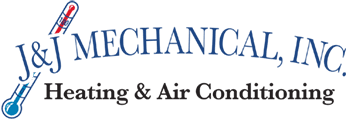Debunking 7 Common HVAC Myths in New Bern, NC
Do you wonder how your HVAC system affects the efficiency, cleanliness and air quality of your New Bern, NC, home? One quick search for HVAC options to maintain the comfort and health of your family reveals a fair amount of conflicting information. Let’s take a look at some common HVAC myths and the truths behind them.
Replace Your Air Filter Once Per Year
This absolutely isn’t the correct approach. Your air filter is the primary mechanism to protect the air quality in your home.
Further, many HVAC problems are traceable back to airflow issues, and a clogged filter reduces airflow. This can lead to your AC coils freezing up, and it can also cause blower motor and compressor failure.
At a minimum, you should change your air filter every 90 days. If you have pets or live in a dusty area, change it more frequently. You may also want to change the filter more often if you have an asthma or allergy sufferers in the home to keep excess allergens and other contaminants out of your air.
Set Constant Thermostat Temperature
This one seems logical. If your thermostat is set at one temperature all day long, your system only has to maintain a constant temperature rather than heat or cool to it when the schedule changes. Unfortunately, this information isn’t factually accurate.
It actually takes quite a lot less energy to heat a cool house than it does to maintain a constant temperature. Turning your thermostat down even a few degrees during the day when no one is home and at night when everyone is asleep will yield significant cost savings on your heating bill. If you don’t have one, a programmable thermostat is the best way to achieve this by setting up a schedule.
Closing Vents in Empty Rooms Saves Money
Again, this one seems logical. If you close the vents in the rooms where you don’t need heat, won’t it flow to other areas where you want it? Why heat rooms that you aren’t using in your home?
The problem is closing the vents increases air pressure in your ductwork, which can cause airflow issues as well as leaking ducts and vent seams. Your air handler can handle a certain amount of airflow, and if the flow becomes impeded enough, you’ll experience performance issues. If you have concerns about system efficiency, a much better approach is to sign up for a maintenance agreement to ensure your system is functioning at peak performance.
Bigger is Better
Bigger HVAC systems move more air and can heat and cool more quickly. If a system is too big for the home, however, it’ll short cycle, a phenomenon whereby the system starts but doesn’t run long enough before shutting back down. Short cycling is inefficient, leading to significantly higher utility costs and premature system failure.
Routine Maintenance is a DIY Project
Your HVAC system consists of multiple units, some of which use hazardous materials. An experienced, trained HVAC service technician has the skills to ensure your system is functioning safely and efficiently to minimize health risks, including the potentially lethal threat of carbon monoxide poisoning.
Use Duct Tape to Seal Ducts
Believe it or not, duct tape isn’t a good solution for sealing ducts. It tends to peel in time, leaving the leak open to vent. If your ductwork is leaking, mastic sealant is the best option to seal your ducts for the long term.
Windows are the Biggest Source of Energy Loss
In many homes, this may be true, but the attic is just as likely a culprit when it comes to energy loss. Because heat rises, the attic is the most likely place for it to escape from your home. A smart homeowner investigates both of these options as potential sources of energy loss.
HVAC systems are complex. You need a professional, knowledgeable expert to help you make the most of your system and decide when it’s time to replace it. Reach out to J & J Mechanical, Inc. to discuss HVAC repair and installation options
.
Image provided by iStock

